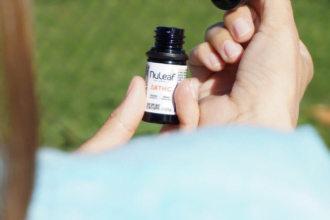There?s so much a mom-to-be has to think about and prepare for, both before and after her baby?s birth. And, as science becomes more advanced ? and we?re more able to research birthing tips and to-dos ? there are more and more postpartum trends that seem to be on the rise. But the use of the word ?trend? implies something ephemeral: After a while, it will be out of fashion with new moms, making way for another new idea that strikes a chord. The following are three of the biggest post-birth trends out there right now. The question is, are these merely fads, or are they here to stay?
Cord Blood Banking
Collecting and banking the blood from a baby?s umbilical cord is one of the few noncontroversial methods for harvesting stem cells, which are incredible health resources. They are adaptable and can develop into different types of cells, which can then be used to rebuild organs, blood vessels and organs. They?ve also been used to treat more than 80 different diseases, including blood disorders, immune deficiencies and even some kinds of cancer. Cord blood banking provides a proper storage facility for a baby?s cord blood so it can be used for medicinal purposes in the future. The baby?s parents can decide whether or not to bank a baby?s cord blood ? and where to bank it. Public facilities give any needy patient access to stem cells, so long as they?re a match. Parents can also pay a high fee to a private cord-blood bank to hold onto a baby?s stem cells for the baby or any relatives who may need treatment with stem cells down the line. It sounds like a great idea to save a baby?s cord blood privately, but there are a few realities to consider about banking it. If a baby is born with a genetic illness, they cannot be treated with their own stem cells, as those will have the same makeup. It?s much more likely your baby?s cord blood could be used to treat a sibling than the baby him- or herself. On top of that, stem cells from a newborn can only be used to treat children of up to 65 pounds ? there aren?t enough stem cells in a baby?s cord blood to treat an adult. It seems as though cord blood collection is here to stay, though ? it has been a major talking point for parents-to-be and medical professionals for several years now. It?s up to parents, though, if public or private donations will be the way of the future: It might just come down to cost and necessity for families who have babies and, therefore, a new source of stem cells.
Placenta Encapsulation
Proponents of encapsulation and consumption of the placenta after birth say the organ can nourish moms just as it does their babies. Those who have eaten their placenta say it boosts their energy levels and their output of breast milk. They also believe it can help new moms avoid postpartum depression and insomnia, as it restores your hormone levels to normal after giving birth. To consume the placenta in pill form, a midwife can prepare the organ for consumption. After drying the placenta, the midwife will powder it and place the powder into capsules. This option is best for the faint of heart, though some women do eat the organ in its original form. The only problem with this trend is there?s not much research on the purported benefits of eating the placenta. All evidence in support of the practice comes from those who have done it ?beyond anecdotal support, though, the practice has little backing from medical professionals. On top of that, some women have reported negative side effects, such as feeling sick, after taking the pills. To ensure new moms are making the right decision about consuming their placenta, the medical community should look further into this trend. With real research into the side effects, women could make a more informed decision, and the trend?s popularity would likely increase or decrease with the research?s results.
Delayed Cord Clamping
The ceremonial clamping of the umbilical cord: As a medical professional, you?re well-acquainted with the practice. But now, the science around cord clamping is changing with continued research into the area. Rather than immediately clamping the umbilical cord when a baby is born, some wait anywhere from 25 seconds to five minutes to make sure all the cord blood makes its way from the placenta to the baby. We?ve already covered how nourishing this blood is, but delaying clamping uses that nourishment in a different way: It?s typically used for pre-term babies who need that extra boost. As of December 2016, the American Congress of Obstetricians and Gynecologists supports the delay in clamping for all babies. Their report states that, while pre-term infants reap the most from the practice, healthy infants can also experience some benefits from additional blood volume. There is still more debate about a lengthier delay in the clamping of the cord ? a practice known as lotus birth. Some mothers choose to let their baby?s cord dry up and fall off naturally, meaning they tote both the cord and the placenta around until that happens. Some doctors warn there?s an increase in risk of infection, but proponents believe it protects the baby from infection. In this area, more research might be necessary, especially with home birth and other natural birthing options gaining popularity in the media and in practice.
Verdict: Research Helps Solidify a Trend
It seems as though cord blood banking and delayed cord clamping are here to stay, with the amount of research and support behind them. As for the encapsulation of the placenta ? as well as the practice of lotus birth ? more research will help decide if these trends are good for moms and, therefore, more likely to stick around for the long term.










